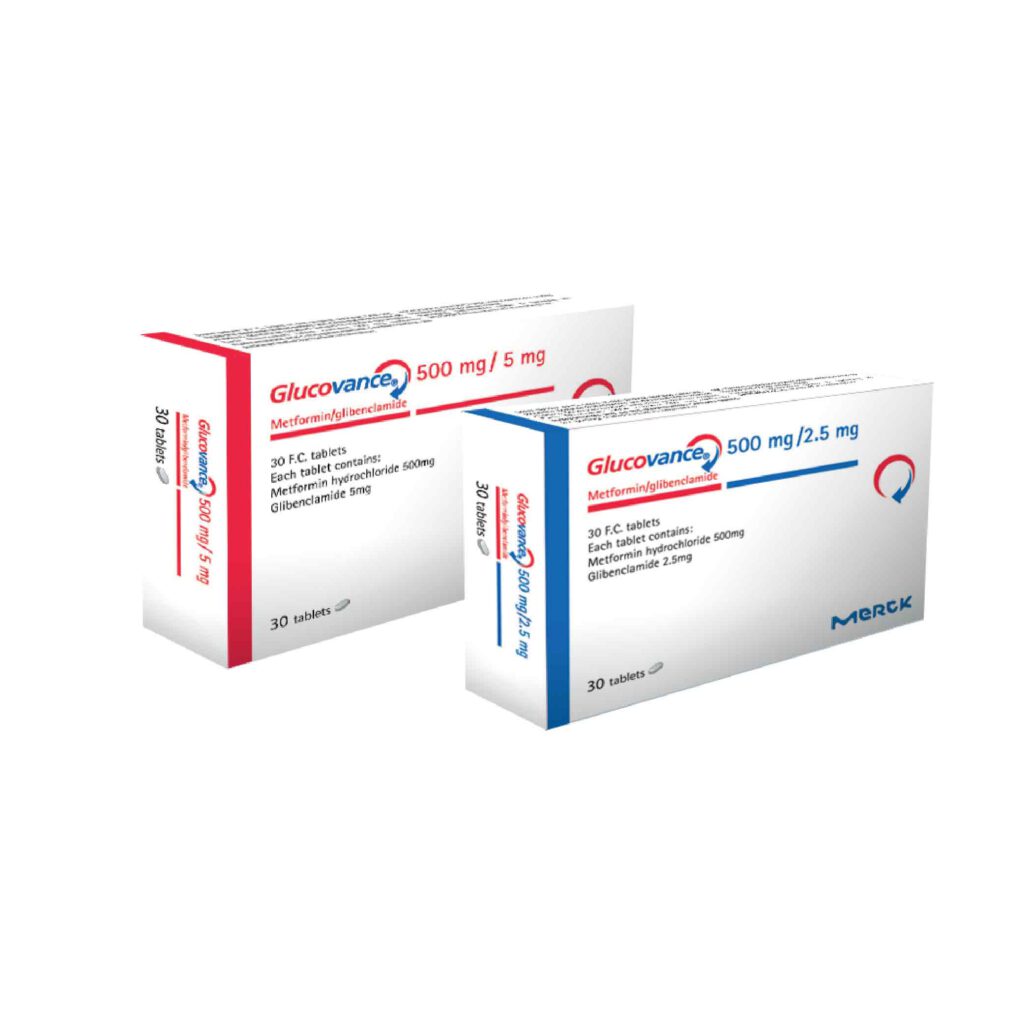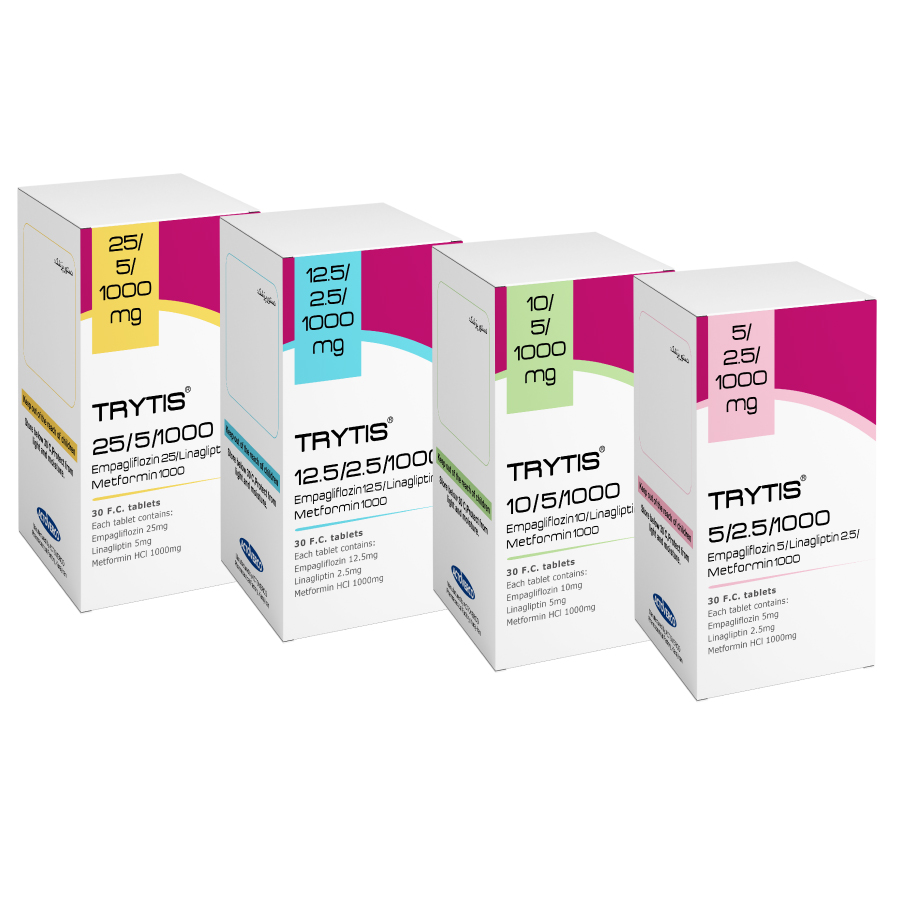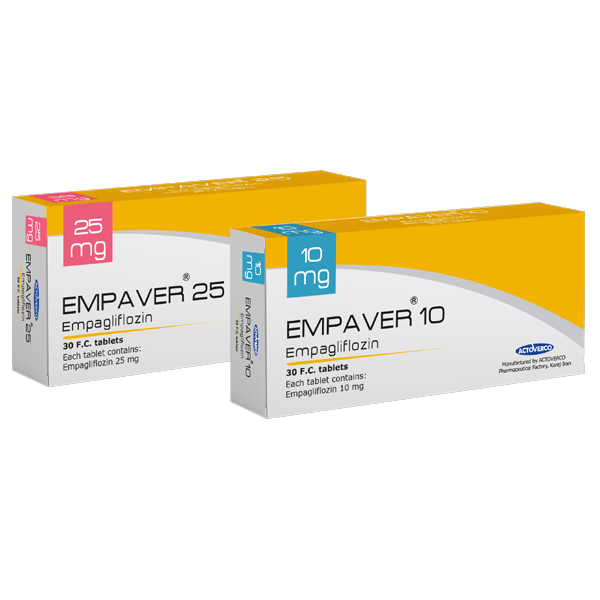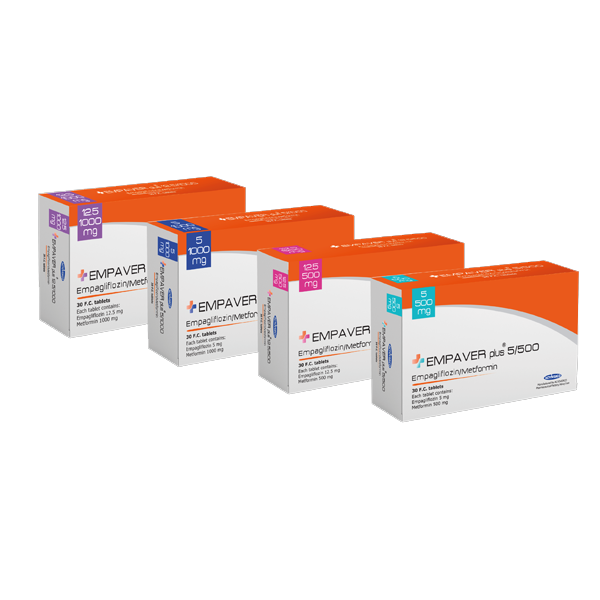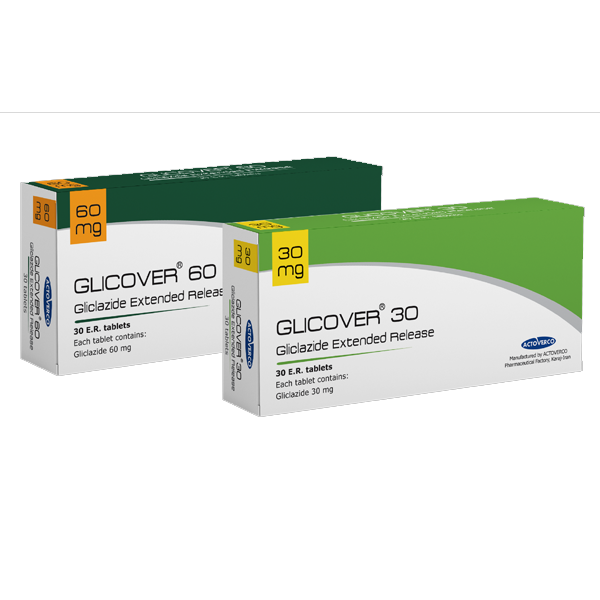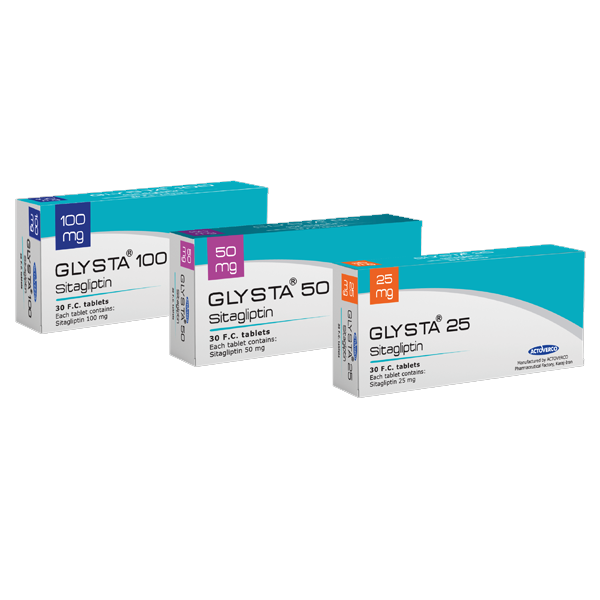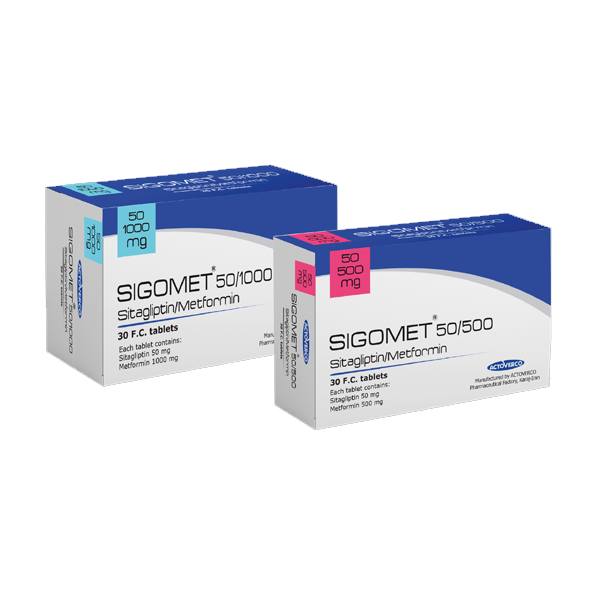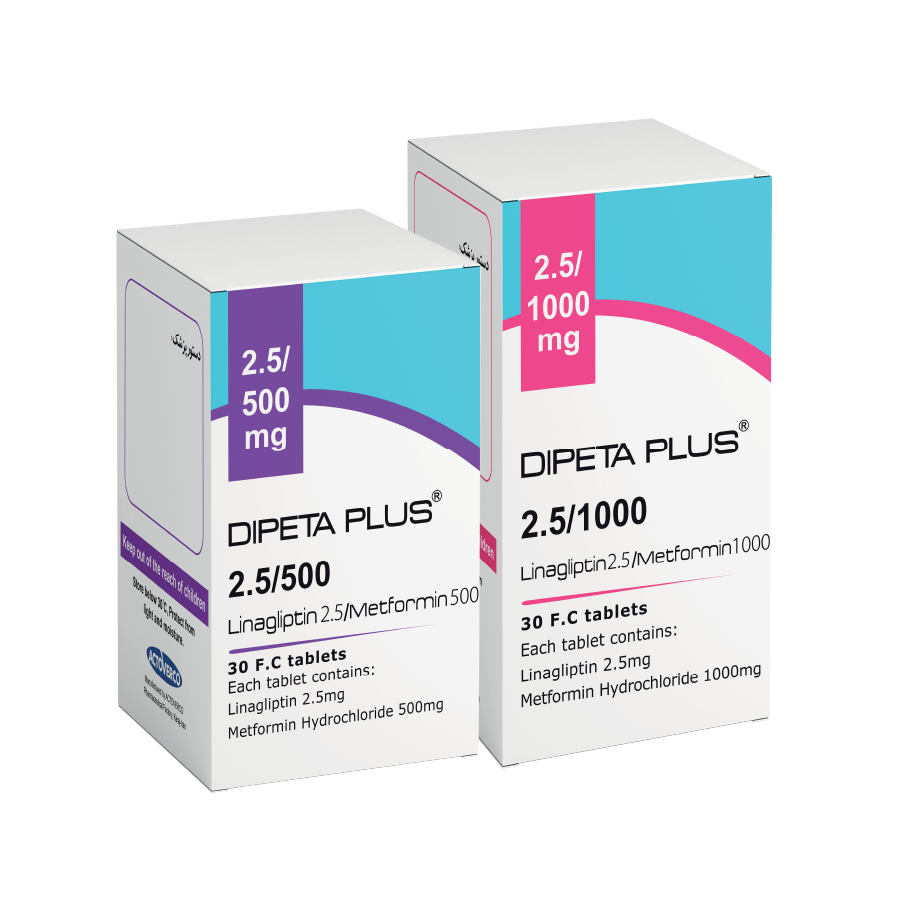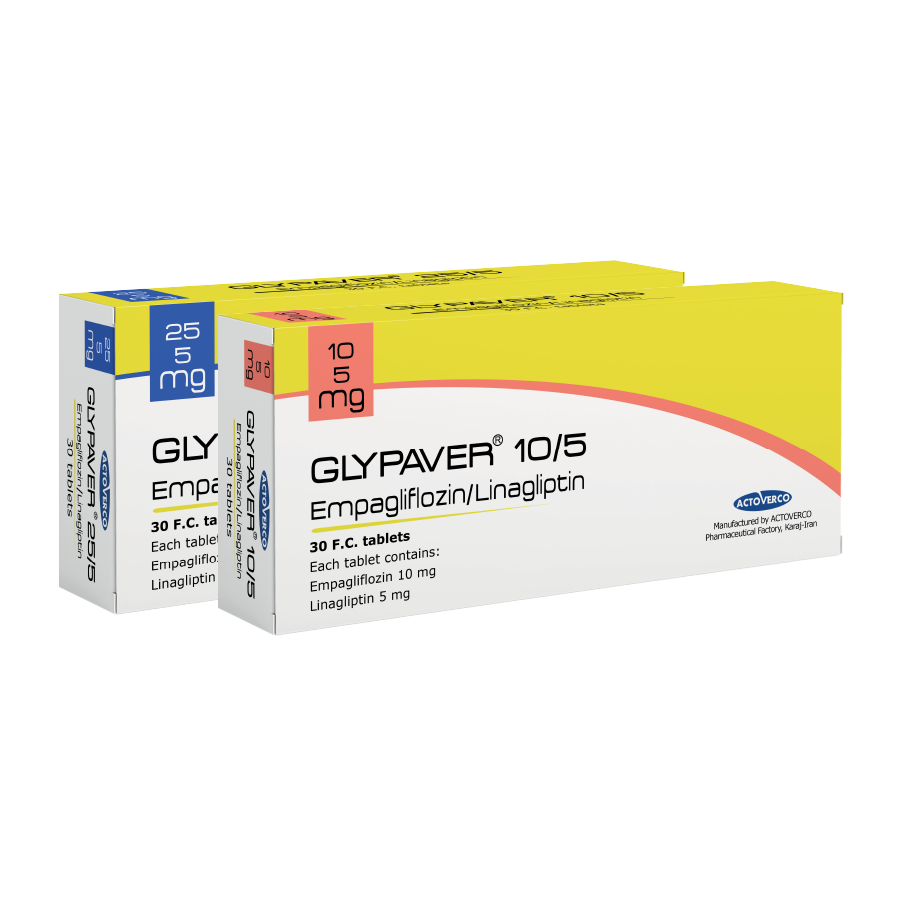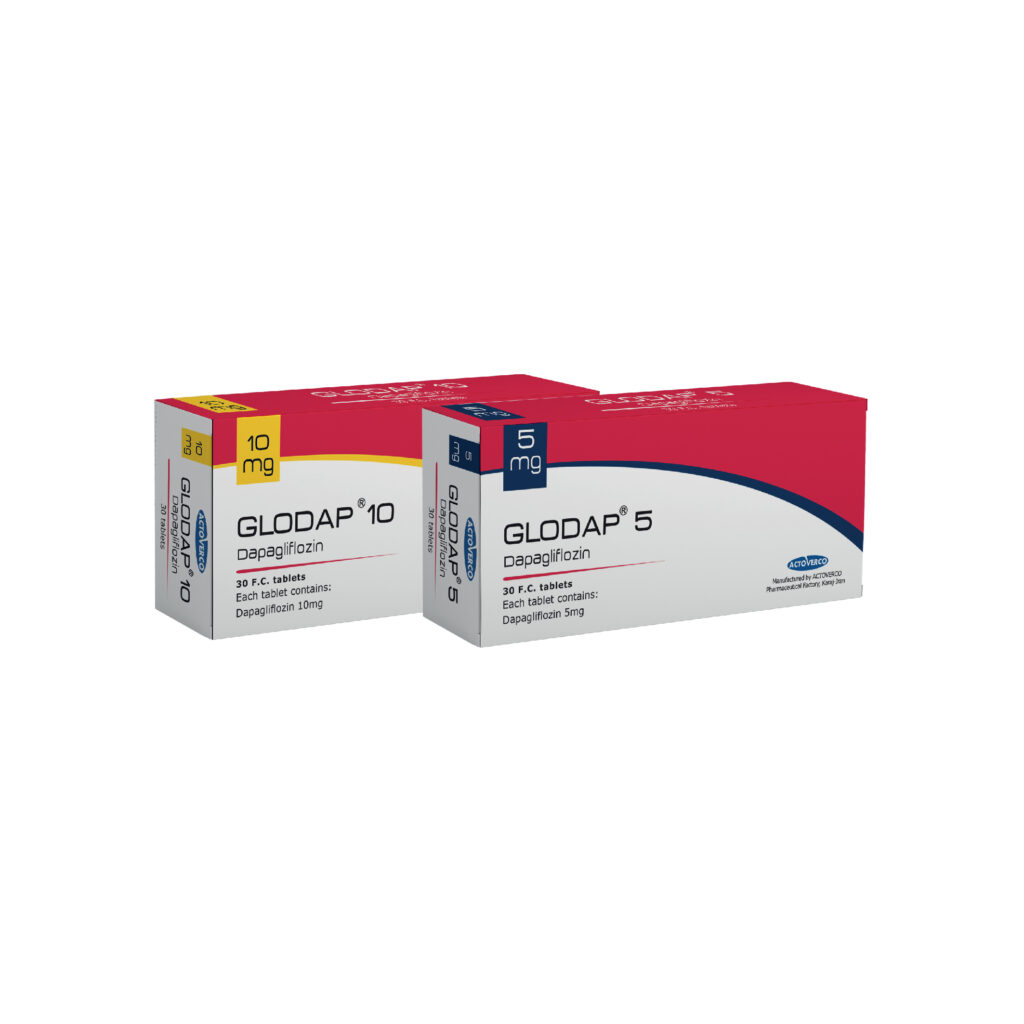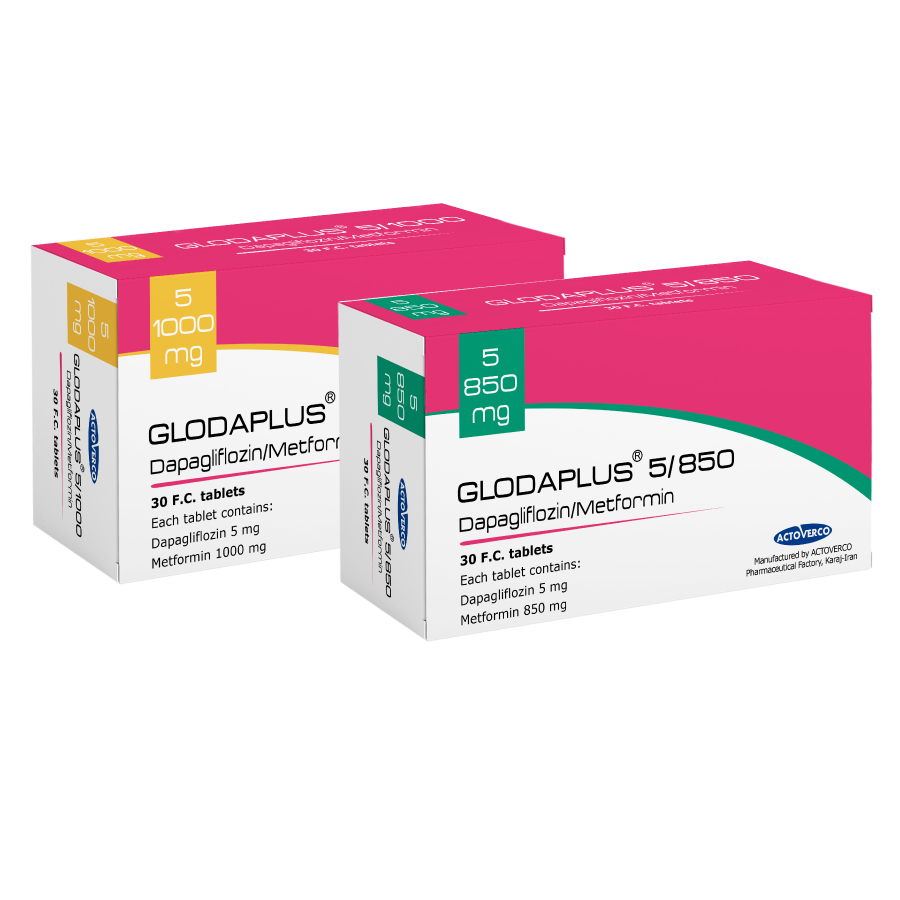Glucovance (metformin hydrochloride and glibenclamide)
Category: Diabetes
Product Description:
Glucovance is the brand name for Metformin/Glibenclamide produced by Actoverco Pharmaceuticals. Glucovance is used to control blood glucose levels (the amount of sugar in the blood) in adults with type II diabetes mellitus.
Product Introduction
Dosage form:
Each film coated tablet has 500 mg metformin and 5 mg glibenclamide
Each film coated tablet has 500 mg metformin and 2.5 mg glibenclamide
What is Glucovance (Metformin/Glibenclamide used for?
- It is used to lower blood sugar in patients with high blood sugar (diabetes).
Important notes before taking Glucovance (Metformin/Glibenclamide):
- If you have an allergy to glibenclamide, metformin, or any other part of this drug.
- If you are allergic to this drug; any part of this drug; or any other drugs, foods, or substances. Tell your doctor about the allergy and what signs you have.
- If you have any health problems: Acidic blood problem, kidney disease, liver disease, or type 1 diabetes.
- If you have had a recent heart attack or stroke.
- If you cannot eat or drink like normal before certain procedures or surgery.
- If you have an exam or test with contrast or have had one within the past 48 hours, talk with your doctor.
- If you are taking bosentan.
- Do not take this drug if you have a bad infection, low oxygen, or a lot of fluid loss (dehydration).
- Tell your doctor and pharmacist about your drugs (prescription or OTC, natural products, vitamins) and health problems. You must check to ensure that it is safe to take this drug with all of your drugs and health problems. Do not start, stop, or change the dose of any medicine without checking with your doctor.
Important notes after taking Glucovance (Metformin/Glibenclamide):
- Tell all of your healthcare providers that you take this drug. This includes your doctors, nurses, pharmacists, and dentists.
- Rarely, metformin may cause too much lactic acid in the blood (lactic acidosis). The risk is higher in people with kidney, liver, and heart failure who use alcohol or take other drugs like topiramate. The risk is also higher in people 65 or older and in people having surgery, an exam or test with contrast, or other procedures. If lactic acidosis happens, it can lead to other health problems and can be deadly. Kidney tests may be done while taking this drug.
- Call your doctor right away if you have signs of too much lactic acid in the blood (lactic acidosis) like fast breathing, fast or slow heartbeat, a heartbeat that does not feel normal, very bad upset stomach, or throwing up, feeling very sleepy, shortness of breath, feeling very tired or weak, very bad dizziness, feeling cold, or muscle pain or cramps.
- Talk with your doctor before you drink alcohol.
- Avoid driving and doing other tasks or actions that call for you to be alert until you see how this drug affects you.
- Do not drive if your blood sugar is low. There is a greater chance of you having a crash.
- Be careful if you have G6PD deficiency. Anemia may happen.
- Check your blood sugar as your doctor has told you.
- Have blood work checked as the doctor has told you. Talk with the doctor.
- Long-term treatment with metformin may lead to low vitamin B-12 levels. Talk to your doctor if you have ever had low vitamin B-12 levels.
- If diarrhea happens or you are throwing up, call your doctor. You will need to drink more fluids to avoid losing too much fluid.
- Be careful in hot weather or while being active. Drink lots of fluids to stop fluid loss.
- This drug may raise the chance of death from heart disease. Talk with your doctor.
- This drug may make you sunburn more easily. Use care if you are in the sun. Tell your doctor if you sunburn easily while taking this drug.
- There is a chance of pregnancy in people of childbearing age who have not been ovulating. If you want to avoid pregnancy, use birth control while taking this drug.
- Tell your doctor if you are pregnant or plan on getting pregnant.
- Tell your doctor if you are breastfeeding.
Side effects of Glucovance (Metformin/Glibenclamide):
Although rare, some people may have very bad and sometimes deadly side effects when taking a drug. Tell your doctor or get medical help right away if you have any of the following signs or symptoms that may be related to a terrible side effect:
- Signs of an allergic reaction, like rash; hives; itching; red, swollen, blistered, or peeling skin with or without fever; wheezing; tightness in the chest or throat; trouble breathing, swallowing, or talking; unusual hoarseness; or swelling of the mouth, face, lips, tongue, or throat.
- Signs of liver problems like dark urine, feeling tired, not hungry, upset stomach or stomach pain, light-colored stools, throwing up, or yellow skin or eyes.
- Change in eyesight.
- Feeling very tired or weak.
- It is common to have stomach problems like upset stomach, throwing up, or diarrhea when you start taking this drug. Call your doctor immediately if you have stomach problems later during treatment. This may be a sign of an acid health problem in the blood (lactic acidosis).
- Low blood sugar can happen. The chance may be raised when this drug is used with other drugs for diabetes. Signs may be dizziness, headache, feeling sleepy or weak, shaking, fast heartbeat, confusion, hunger, or sweating. Call your doctor right away if you have any of these signs. Follow what you have been told to do for low blood sugar.
All drugs may cause side effects. However, many people have no side effects or only minor side effects. Call your doctor or get medical help if any of these side effects or any other side effects bother you or do not go away:
- Headache
- Belly pain
- Upset stomach or throwing up
- Diarrhea
- Dizziness
How is this drug best taken?
- Take with meals.
- Keep taking this drug as you have been told by your doctor or other health care provider, even if you feel well.
What do I do if I miss a dose?
- Take a missed dose with a meal as soon as you think about it.
- If it is close to the time for your next dose, skip the missed dose and go back to your normal time.
- Do not take two doses at the same time or extra doses.
How do I store and throw out this drug?
- Store at room temperature.
- Store in a dry place. Do not store in a bathroom.
- Keep all drugs in a safe place. Keep all drugs out of the reach of children and pets.
- Throw away unused or expired drugs. Do not flush down a toilet or pour down a drain unless you are told to do so. Check with your pharmacist if you have questions about the best way to throw out drugs. There may be drug take-back programs in your area.

